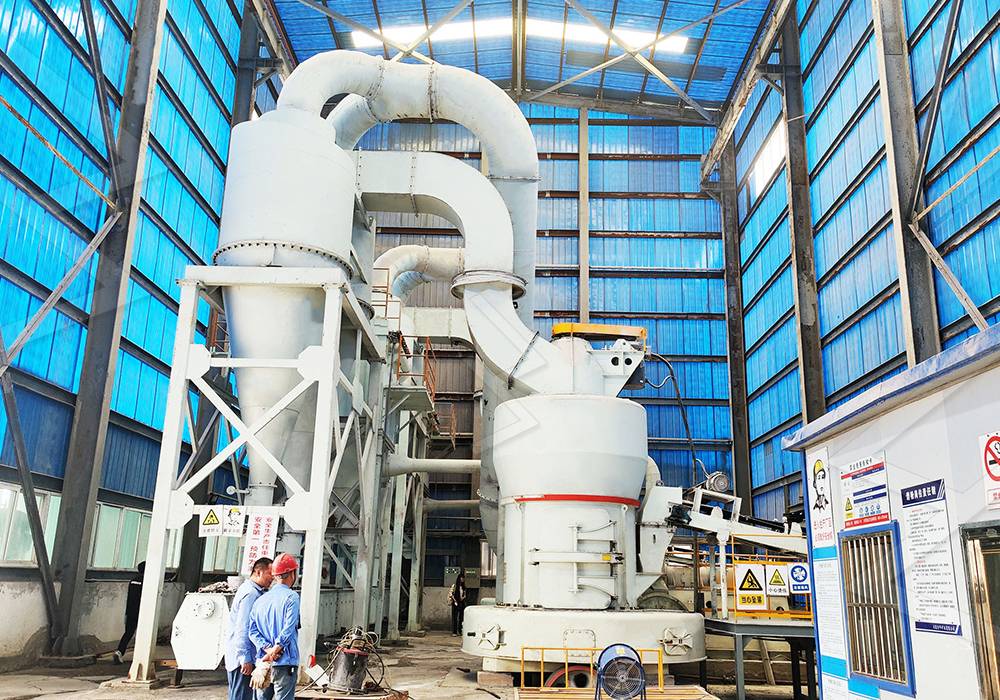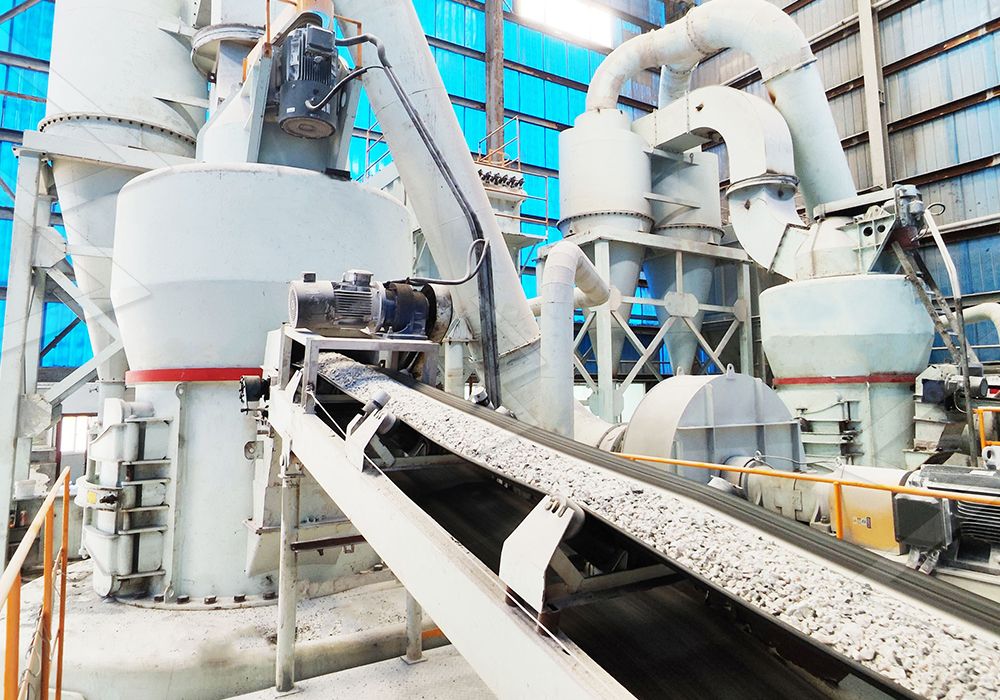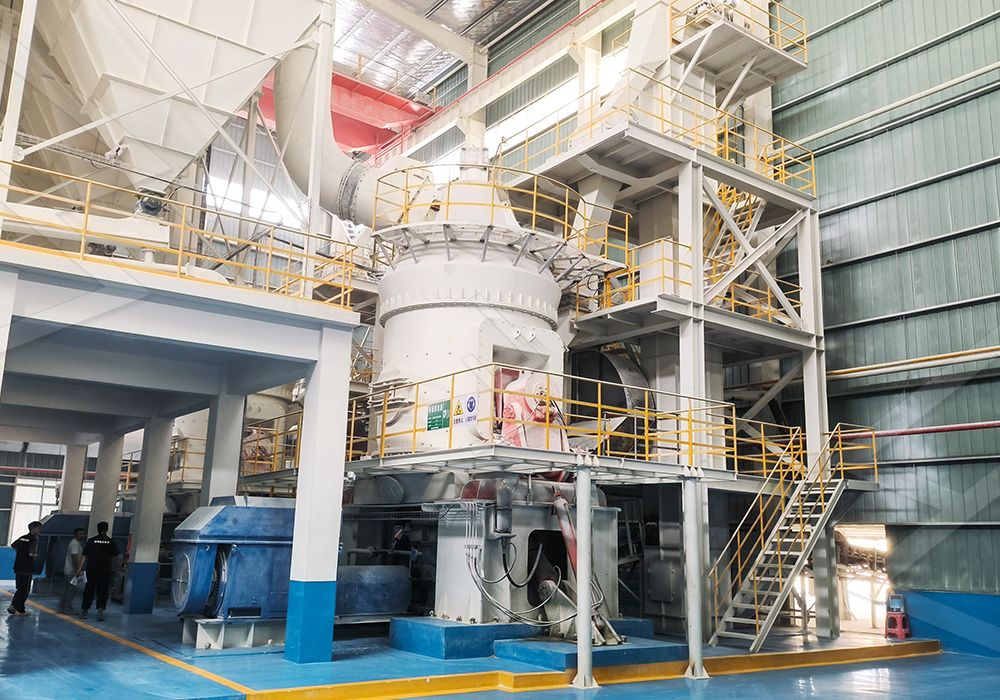Industry News
Top 5 Gypsum Grinding Mills for Agricultural Lime – Supplier in India
2025-11-18 08:43:23
We are Liming Heavy Industry, a manufacturer of various types of industrial crushers, such as Raymond Mill, Trapezoidal Mill, Vertical Mill, Ultrafine Mill, Ball Mill, etc.
Our mills can process the following minerals:
limestone, quicklime, kaolin, talc, barite, bentonite, calcium carbonate, dolomite, coal, gypsum, clay, carbon black, slag, cement raw materials, cement clinker, etc.
If you need a mill to process stone or minerals into powder, please feel free to contact me (WhatsApp: +86 153 3380 7511). Thank you.
Gypsum has become an increasingly important additive in India's agricultural lime production. Its ability to supply sulfur and calcium while improving soil structure makes it widely used in sugarcane plantations, soybean fields, and other large-scale farming areas. To ensure the stability of gypsum quality and fineness, selecting the right grinding mill is essential. Different mills offer varying capacities, particle size ranges, and operating costs, making the choice of equipment directly linked to product competitiveness and long-term profitability.

In India, where large agricultural operations require continuous and reliable powder supply, grinding mills must provide high throughput, energy efficiency, and the ability to produce uniform fine powder. Below are the top five types of mills commonly used for gypsum processing in the production of agricultural lime.
1. Raymond Mill
Raymond mill is among the most widely used grinding machines for gypsum. Its structure is simple, stable, and suitable for medium-fine output. The mill can process gypsum to 80–325 mesh, which meets most of the agricultural lime requirements. It offers consistent production, easy maintenance, and a relatively low investment cost. For manufacturers who need steady output with reliable performance, this mill remains a proven option.
Vertical mills are becoming a preferred choice for gypsum grinding in India due to their high capacity and excellent energy savings. The integrated grinding, drying, and classifying functions make them ideal for regions with varying moisture content in raw gypsum. Vertical mills can produce fine powder up to 600 mesh with stable particle size distribution. Their compact footprint and lower power consumption per ton make them suitable for modern agricultural lime plants seeking efficiency and long-term operational stability.

3. Ultrafine Grinding Mill
When the agricultural application requires extremely fine gypsum powder, an ultrafine mill is the right solution. These mills typically achieve 600–2500 mesh fineness, enabling highly reactive lime blends. Although the investment cost is higher, the resulting product quality benefits specific crop improvement programs and premium soil amendment products. Ultrafine mills are commonly used by suppliers targeting specialized or value-added agricultural lime markets.
4. Trapezium Grinding Mill
Trapezium mills combine the advantages of traditional Raymond mills with upgraded structural designs. The unique grinding roller and ring system improves the contact area and pressure distribution, resulting in better grinding efficiency. They can reach fineness similar to Raymond mills but offer improved output per unit of energy. For mid-range agricultural lime producers, the trapezium mill offers a balanced solution between cost and performance.
5. Ball Mill
Ball mills remain a dependable option for gypsum grinding, especially when large volumes and flexible processing requirements are involved. They can handle coarse feed sizes and operate with a variety of grinding media. While the final powder fineness is usually lower than ultrafine mills, ball mills are favored for their durability and long service life. They are effective for agricultural lime producers who prioritize high capacity and equipment longevity.

Choosing a Trusted Supplier in India
For gypsum grinding lines in India, selecting reliable equipment is crucial for ensuring consistent powder quality and long-term operational stability. A dependable supplier should offer professional technical support, assistance with plant design, and durable mills capable of long hours of continuous operation.
Vertical mills and Raymond mills are the most commonly chosen machines due to their balance of price, energy efficiency, and ability to produce high-quality gypsum powder. Manufacturers looking to upgrade production capacity or enhance product quality often prefer these two types.
Recommended Equipment for Agricultural Lime Production
For businesses seeking stable performance and high-quality gypsum powder, mills from Liming Heavy Industry offer dependable solutions. The company's Raymond mill provides consistent fineness suitable for most agricultural lime specifications, while the vertical mill delivers higher capacity, better efficiency, and finer powder for large-scale operations. Both machines are designed for long-term industrial use and are widely supplied to gypsum and agricultural lime factories around the world.
_1761355701097.jpg)
FAQ
1. What fineness is required for gypsum used in agricultural lime?
Most applications require 80–325 mesh, but some specialized products may need finer powder up to 600 mesh.
2. Which grinding mill is most energy-efficient for gypsum?
Vertical mills generally offer the best energy efficiency due to their integrated grinding and classification design.
3. Can Raymond mills handle continuous large-scale production?
Yes, Raymond mills are suitable for stable, continuous operation and are widely used in medium-capacity gypsum plants.
4. What is the advantage of vertical mills for gypsum grinding?
They combine grinding, drying, and classification into one system, providing consistent fine powder with lower power consumption.
5. Are ultrafine mills suitable for agricultural lime?
Yes, when agricultural products require highly reactive fine gypsum, ultrafine mills can achieve the necessary high mesh sizes.
6. Is ball milling suitable for high-moisture gypsum?
Ball mills can handle varying moisture levels, but vertical mills are typically more efficient for drying and grinding simultaneously.
7. What type of mill is recommended for a new agricultural lime plant in India?
Raymond mills and vertical mills from Liming Heavy Industry are reliable choices due to their proven performance and stable operation.







